There is a Longduo Mountain in Chongqing, which was once as famous as the Five Mountains and the dividing line between Bashu and Bashu. Today, it is little known
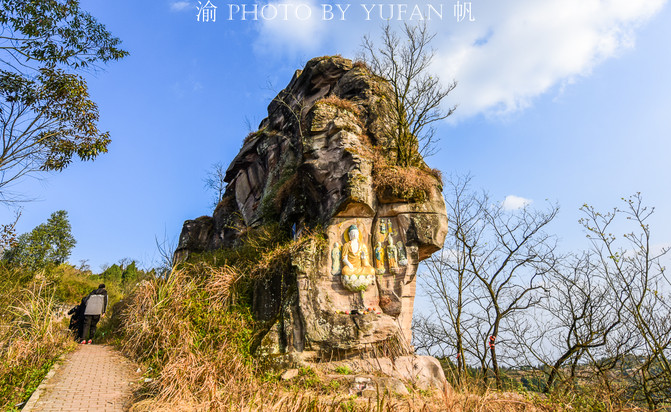
Chongqing is also called a mountain city. It is located on the edge of the Sichuan Basin and belongs to a mountainous hilly landscape. There are indeed many famous mountains within its jurisdiction, such as Shennu Peak in Wushan, Jinfo Mountain in Nanchuan, Simian Mountain in Jiangjin, Xiannu Mountain in Wulong, etc. They all have a certain reputation in China, but if there are peaks as famous as the five mountains, Chongqing people themselves may not believe it.
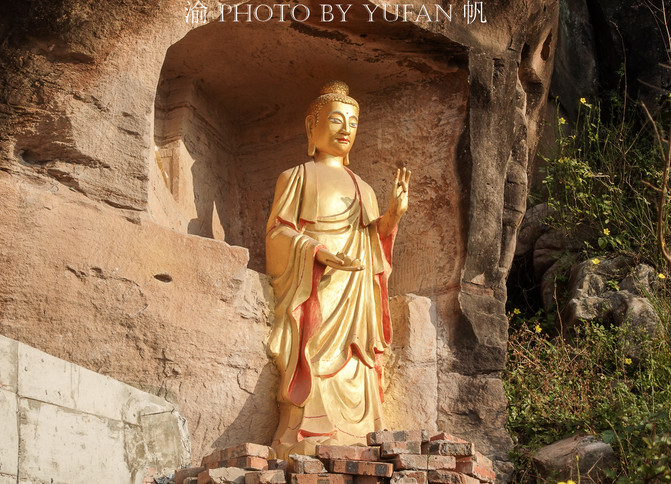
It doesn't matter whether you believe it or not, but in history, there was really such a famous mountain in Chongqing. It was Longduo Mountain, which was once a prominent one but now few people know it. It was once the dividing line between the ancient Ba and Shu. There are also ancient Chishui County ruins on the mountain. There are temples of Buddhism and Taoism on the mountain, and there are many cultural relics.
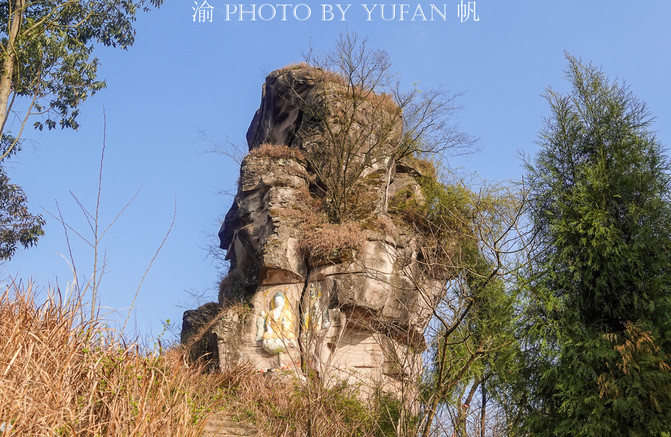
The altitude of Longduo Mountain is 619 meters, which is not high. Not to mention that it has no advantages compared with the three mountains and five mountains, but there are also many mountains higher than it in Sichuan. However, the mountains are not high, and there are immortals. Not only was the Taoist supreme ancestor Chen Tuan born in Chongniche not far from the foot of the mountain, but also during the Western Jin Dynasty, Feng Gailuo, a native of Guanghan in Sichuan, made alchemy on the mountain. In the third year of Yongjia (309), his family of 17 members ascended to immortality. The stone he cultivated and ascended is also the current Immortal Ascension Stone (as shown in the picture above).
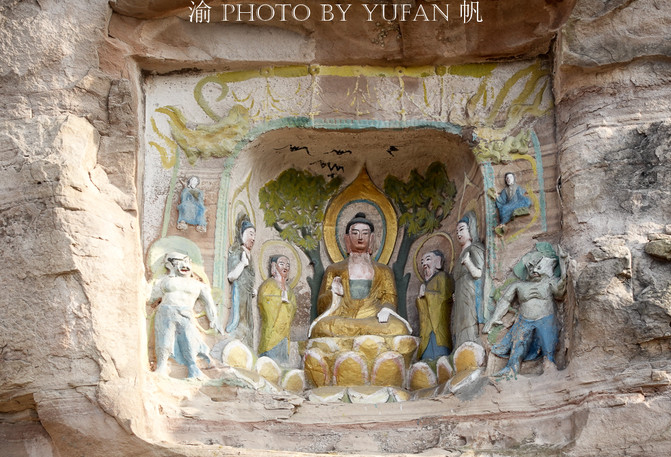
It is understood that Longduo Mountain is actually originally known as Ziwei Mountain. The reason why it is famous is not only because Feng Gailuo's family ascended here, but also because Wu Zetian, the empress of the Tang Dynasty. She was born in Guangyuan, Sichuan. When she was a child, she was taught by a Taoist on Longduo Mountain that she has the appearance of an emperor. Later, she visited this mountain again after landing in the world. She felt that the mountain peaks were winding and stretching beyond the sky, like a soaring dragon, so she changed its name to Longduo Mountain, and also "Qinqin" mountain monks built a release pond on the mountain.
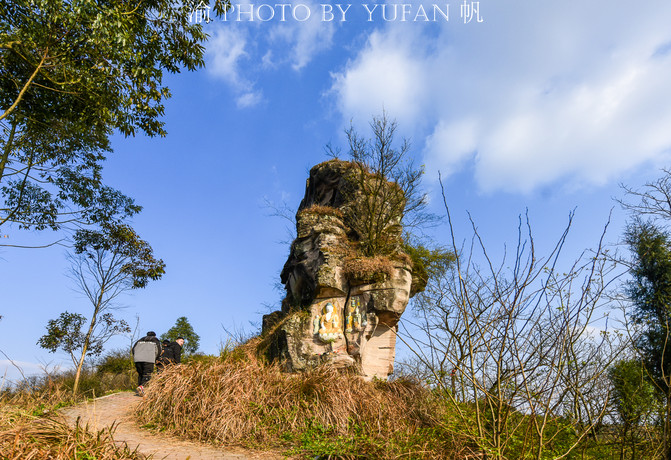
After Jingwu was given a godsend name, Longduo Mountain became famous. At that time, its reputation in Sichuan was not lower than Mount Emei and Mount Qingcheng. After the Anshi Rebellion, Emperor Xuanzong of the Tang Dynasty arrived in Sichuan and also visited this mountain. He mentioned in an imperial decree: There are other mountains beyond the five mountains, and only dragons can be the most powerful ones! Therefore, for some time after that, it was the only one as famous as the Five Mountains.
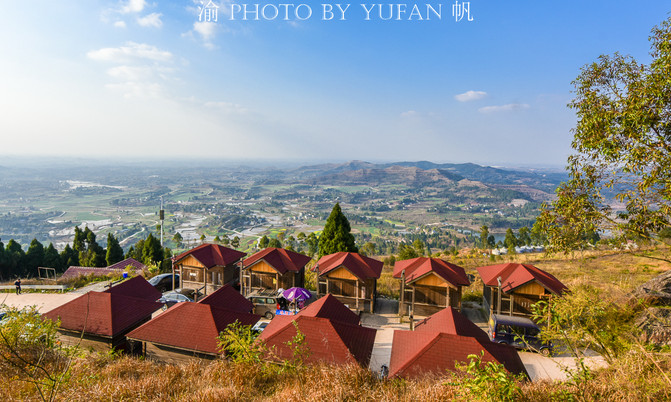
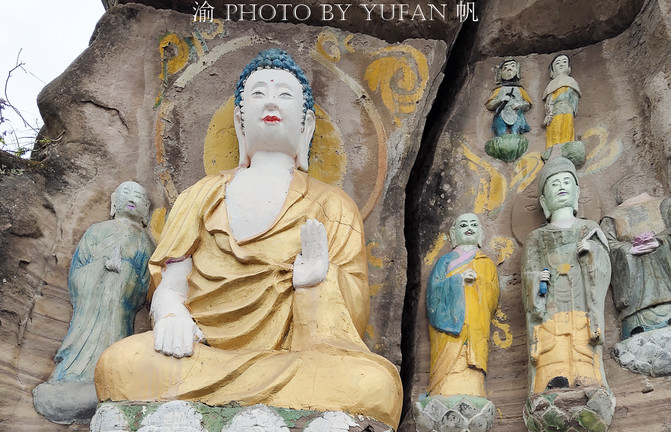
For hundreds of years after the Tang Dynasty, Longduo Mountain has always been a famous mountain in Sichuan. Buddhism and Taoism are prevalent, and many precious stone carvings have been left on the cliffs. Among them, there are 13 stone carvings preserved around the Feixian Stone in Tongnan. Most of them are Buddhist and Taoist statues from the Tang and Song Dynasties, with nearly a hundred in number, providing valuable physical information for the study of ancient religion and stone carvings in southwest my country.
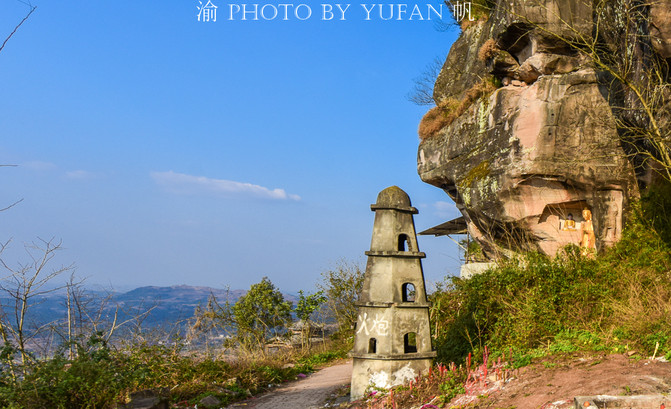
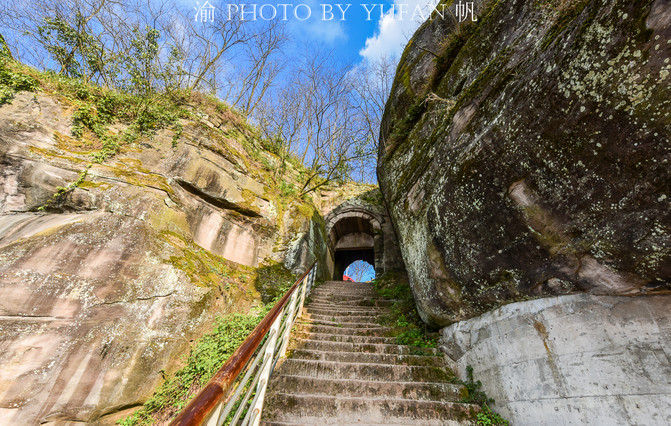
In the Qing Dynasty, society was in turmoil. In order to defend against the White Lotus uprising, Longduo Stronghold was built on the mountain in the third year of Jiaqing of the Qing Dynasty (AD 1798). The entire mountain village is about 3 kilometers in circumference, with 4 gates and 8 hills. The towering cliffs surround the village into a circle, forming a natural circular city wall. The four gates in the southeast, northwest and northwest are built on the cliffs. The terrain is dangerous and important., with the extraordinary momentum of a standard mountainous city that "one man is at the pass, but no ten thousand people can open it."
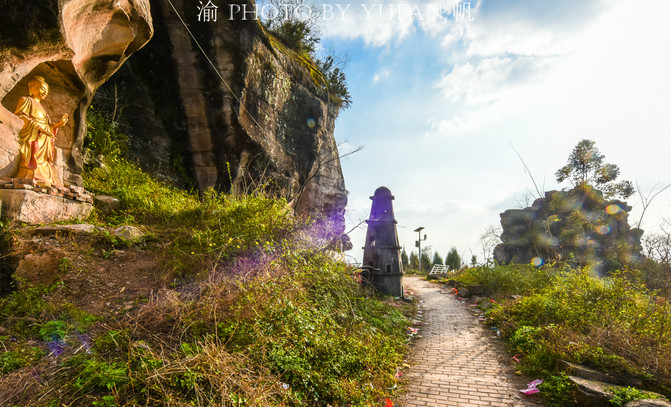
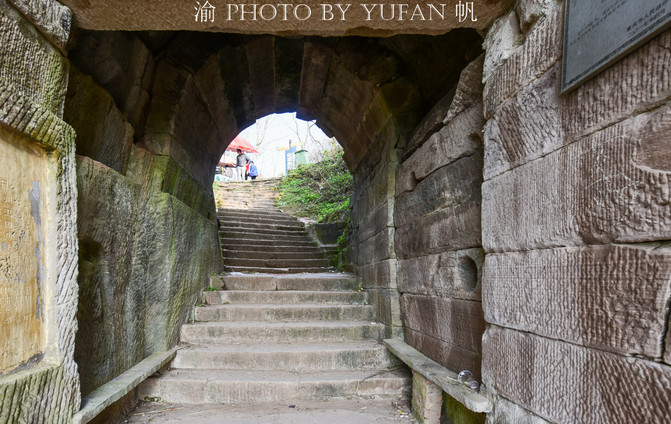
According to the old Taoist in the mountains, there are four gate gates in the stockade, namely Yongzhen Gate in the east, Ruiying Gate in the south, Taiping Gate in the west and Yingen Gate in the north. Among them, Yongzhen Gate is located at the "Dragon Heads Up" point of Longduo Mountain. It is currently the main passage leading to Longduo Mountain. It is basically intact, and it still has the momentum of one man dominating the pass and ten thousand people not opening it.
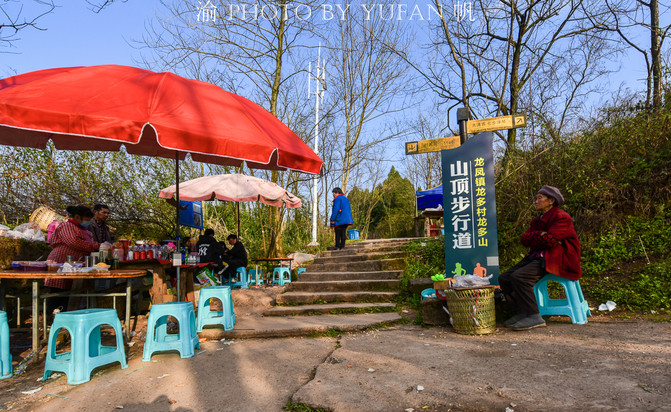
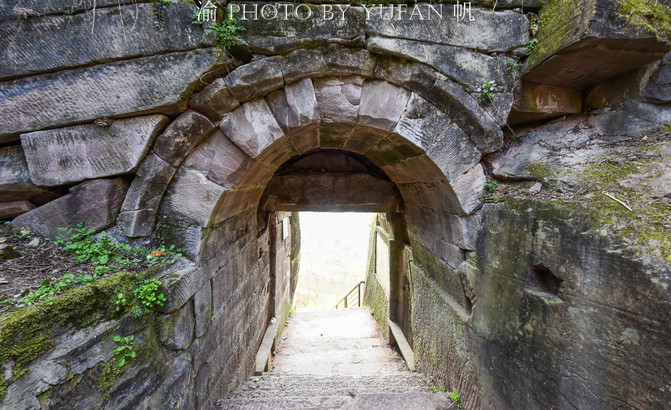
Ruiying Gate in the south is the passage from ancient Chishui County to Longduo Mountain. It is unknown when it was destroyed, but it no longer exists; Taipingmen in the southwest is the passage from Mengzi Township (now Longxing Town) in Tongnan District to Longduo Mountain, and the gate is still intact; Yingen Gate is the passage from ancient Dingyuan County (now Wusheng County in Sichuan) and Pengxi County to Longduo Mountain. It is currently hidden among the weeds, and Yufan has not yet explored it. The details are unknown.
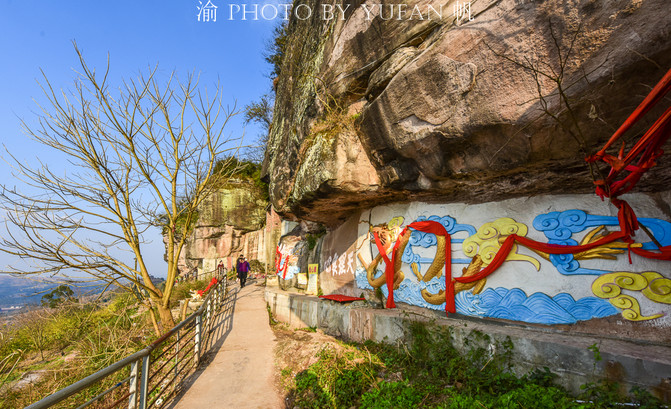
Although Longduo Mountain is not high, it is densely populated with scenic spots. Among them, there are eight scenic spots in the natural scenery category: Jiutai Xianrui, Feixian Flowing Spring, strange rocks holding pine, clear rocks surrounded by green, Huanglong spitting fog, Chicheng Old Traces, Hengjiang White Lian, Qunqun Peak Dui Cui, while the scenic spots in the historical sites category include: Bashu Boundary Stone, Jinglao Cliff, Feixian Spring, Feixian Cave, Feixian Stone, Lingyin Cliff, Sendai, Toad Stone, etc. Behind each scenic spot is a rich history or ancient legend.
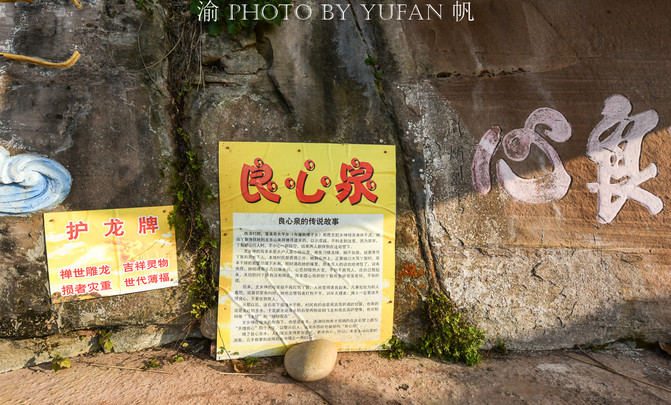
For example, on the steep wall of the western rock of Longduo Mountain, the four characters "God's Conscience" are carved. There are gurgling mountain springs flowing out along the winding path under the rock. Local villagers call this spring water the "Spring of Conscience". As for its origin, there is a magical story circulating among the people. Legend has it that during the late Qing Dynasty, a mistress surnamed Wen was unwell at the foot of the mountain. She carried a servant girl up the mountain to worship Buddha and seek medicine. Unexpectedly, the mountain road was difficult to travel, and she missed her feet and fell off the rock wall and was trapped in the mountain. How could she endure this? Just as she was about to scold the servant girl for not helping her well, a few drops of spring water from the rock wall just happened to drip into her mouth, and the original words of cursing were blocked. Strangely enough, after she swallowed a few mouthfuls of spring water, her mentality suddenly changed greatly. Not only did she no longer curse, She also asked the servant girl with concern whether she had been injured. After this incident, she not only recovered physically, but also thought of others everywhere. She also often warned others: Be a person of conscience and not use your power to bully others. Under his mother's teachings, his son also benefited a lot, so he asked local scholar Zhou Binglie to write the four characters "Heaven's Reason and Conscience" on this stone wall to warn future generations. Therefore, this spring water is also called the "Spring of Conscience".
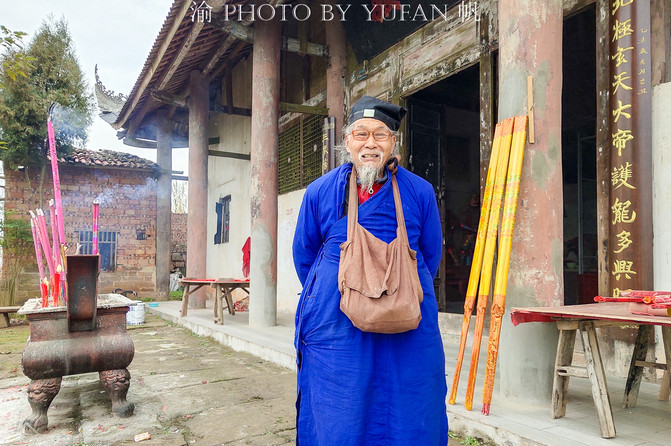
There were many temples in Longduo Mountain in history, including the famous Lingshan Temple built in the Jin Dynasty (Also known as Feng Xian Temple, but only the temple foundation is still available today), Jiutai Temple built in the Tang Dynasty (the main temple of Longduo Mountain. It was demolished in 1962, and now only some remnant pillars and steles are left), Wuchou Palace built in the Tang Dynasty (now the temple has been converted into private houses, most of which have been damaged), Sun Gong Temple built in the Song Dynasty (a building commemorating Sun Qiao, author of "Longduo Mountain Lu", only the foundation is left), and there are more than ten temples and Taoist temples such as Fohui Temple, Lingfo Temple, and Longfeng Temple, which enjoy a very high status in Sichuan.
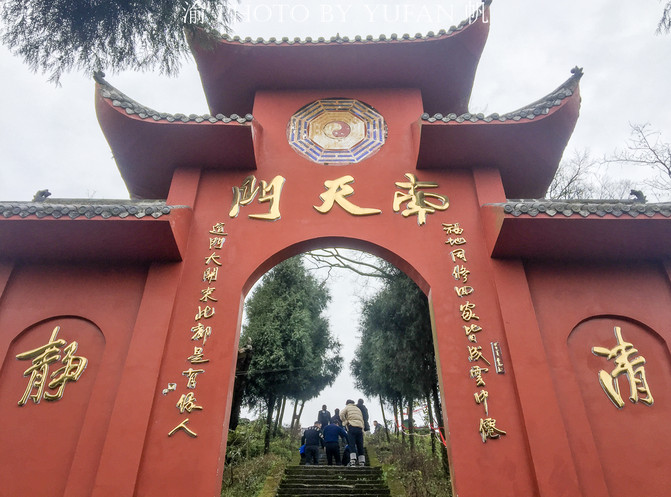
Nowadays, times have changed, and Longduo Mountain has long lost its former glory. Not to mention being as famous as the three mountains and five mountains, it does not have much sense of existence even in Chongqing. However, this does not affect its former glory in the vicinity. As a famous mountain where Buddhism and Taoism coexist, the Taoist buildings on the mountain now include Zhenwu Hall and Jade Emperor Hall, and the Buddhist buildings include Ancient Buddha Hall, Dragon Buddha Temple, Guanyin Hall, etc. The incense is still very strong.
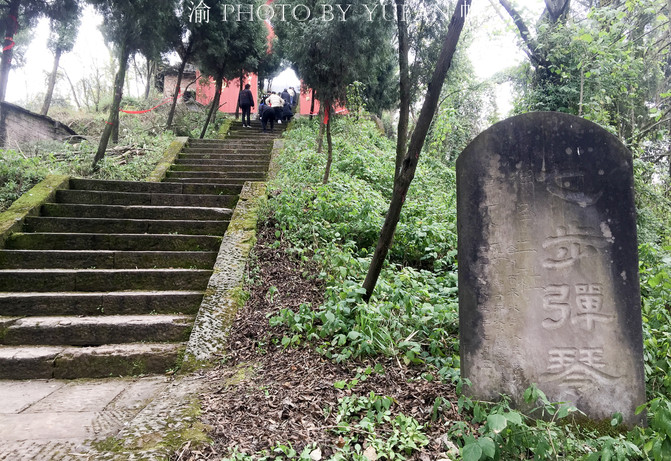
Under the stone steps in front of the Nantianmen Gate, a landmark building in the mountain, Yu Fan saw a stone tablet with the four characters "Seven Steps to Play the Piano" written on it. What a coincidence, it has the same name as the Shidun piano music in Chongqing Dafo Temple (also commonly known as the Seven Steps to Play the Piano), but it is not as famous as the latter. The Shidun piano music of Tongnan Dafo Temple is not simple. It is one of the four major echo buildings in China. However, the principle should be the same, but the echo we walk on the stone steps is unclear.
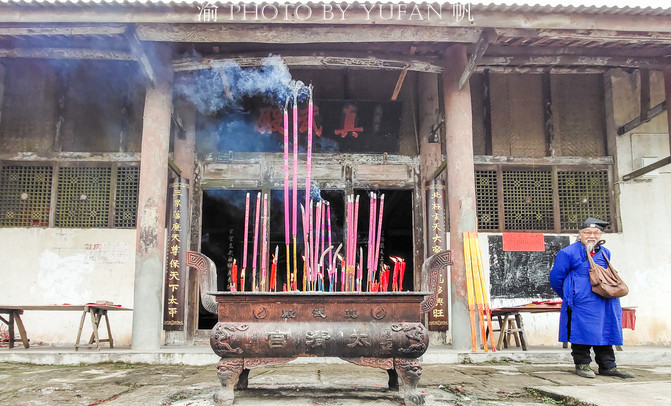
Longduo Mountain is now well-known in surrounding Zhou County, and there is no need for tickets to go up the mountain. However, it can be seen from the pictures that there are not many tourists, and it can even be described as very few. Only on the second day of the lunar calendar every year, when the dragon rises its head, will Longduo Mountain gather thousands of people from Hechuan, Tongnan, Chongqing, Pengxi, Wusheng and other places to go up the mountain to attend temple fairs, or ask questions or worship Buddha. The smoke is lingering and the crowd is crowded. The scene is spectacular!
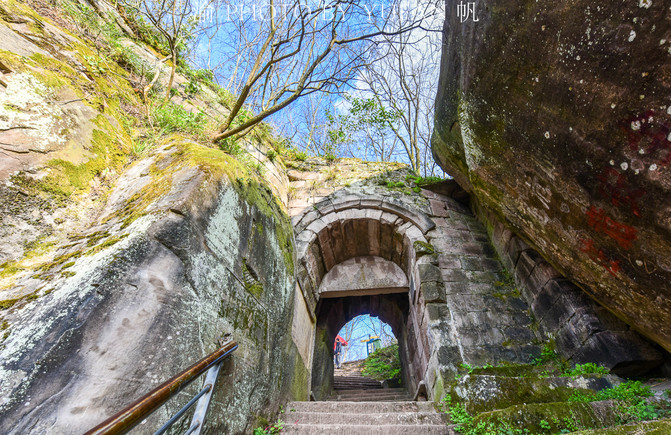
Longduo Mountain was once the boundary mountain of Bashu, but now it is located at the junction of Tongnan and Hechuan. At best, it is a strategic victory for military strategists to compete for. At worst, in fact, such zoning is not conducive to its overall construction and operation. Hechuan has famous scenic spots such as Fishing City and Laitan Ancient Town. It is estimated that there will be no time to take care of this nearby Longduo Mountain for a while. Tongnan only occupies a small part of the mountain, and it is probably not enough to operate. If it belongs to a certain district and county, It is estimated that the worst is an AAAA tourist attraction (purely personal opinion, no ill intentions, don't spit if you don't like it). What do you think?
Next Article:The tourist season is here, bring Master Kong instant noodles to check in the beautiful scenery!
